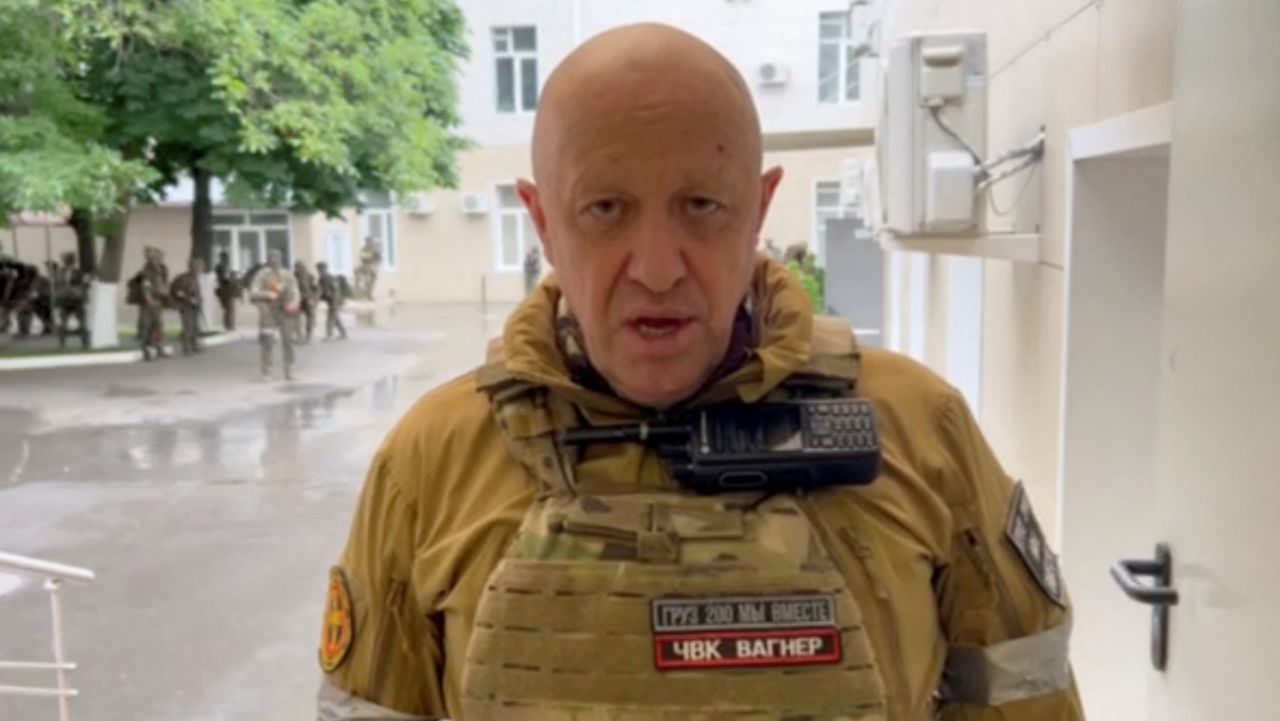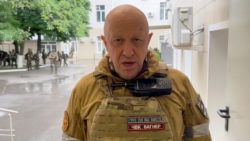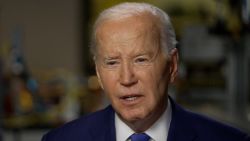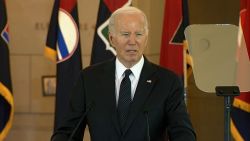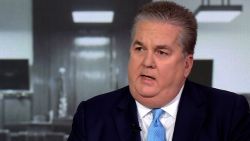US intelligence officials believe that Yevgeny Prigozhin, chief of the private Wagner military group, had been planning a major challenge to Russia’s military leadership for quite some time, but it was unclear what the ultimate aim would be, three people familiar with the matter told CNN.
Intelligence officials briefed congressional leaders known as the Gang of Eight earlier this week concerning Wagner group movements and equipment buildups near Russia, two of the people said.
US and Western intelligence officials saw signs that Prigozhin was making preparations for such a move, including by massing weapons and ammunition, one Western intelligence official and another person familiar with the intelligence said.
A source familiar with the intelligence said “it all happened very quickly,” and it was difficult to discern how serious Prigozhin was about threatening the Russian military and where he would take his troops.
Prigozhin had vowed Friday to retaliate against Russian military leadership over an alleged strike on a Wagner military camp and claimed control of military facilities in two Russian cities. Yet by Saturday afternoon, he published an audio recording claiming he was turning his forces around from a march toward Moscow, just hours after launching an insurrection that posed the greatest threat to Russian President Vladimir Putin’s authority in decades.
“We are turning our columns around and going back in the other direction toward our field camps, in accordance with the plan,” he said in a message on Telegram after his forces claimed control of several military facilities and after he dispatched some of his troops toward Moscow.
The Kremlin said later Saturday that Prigozhin had agreed to leave Russia for Belarus in a deal apparently brokered by Belarusian President Alexander Lukashenko, a key Putin ally, that ended the armed insurrection.
As the situation unfolds, US and Western officials have been careful not to weigh in because of how Putin could weaponize any perceived involvement by the West in the escalating crisis, sources familiar with the administration’s thinking told CNN.
No change in Russia’s nuclear posture
Since Prigozhin began his insurrection, the US has not seen a change in Russia’s nuclear posture, two US officials told CNN.
“We have not seen any changes in the disposition of Russian nuclear forces,” a State Department spokesperson said, adding that the US has “no reason to adjust our conventional or nuclear force posture. We have long-standing, established communication channels with Russia on nuclear issues.”
Putin has repeatedly engaged in nuclear saber-rattling over the course of the Ukraine war. The Russian leader said earlier this month that the first tactical nuclear weapons to be stored in Belarus had arrived. President Joe Biden called the move “absolutely irresponsible.”
The US has continued to monitor Russia’s nuclear posture throughout the Ukraine war despite Russia suspending earlier this year its participation in the single lasting nuclear arms control treaty between Washington and Moscow. This has meant that the two nations are no longer sharing certain notifications required under the treaty, including updates on the status or location of treaty-accountable items such as missiles and launchers.
“As a nuclear power, Russia has a special responsibility to maintain command, control, and custody of its nuclear forces and to ensure that no actions are taken that imperil strategic stability,” the State Department spokesperson said.
Meanwhile, the US diplomatic presence in Russia has remained unchanged amid the latest developments.
“Our embassy in Moscow remains open, we are in regular communication with it, and its operating posture remains the same at this time,” the spokesperson said.
Western officials monitoring the situation
Officials across the Biden administration convened emergency meetings on Friday night to assess the events, which unfolded so quickly that they caught US and European officials off guard, the sources with knowledge of the administration’s thinking said.
Biden spoke Saturday with the leaders of France, Germany and the United Kingdom about the situation in Russia, and they reaffirmed their “unwavering support for Ukraine,” according to a readout from the White House.
US Secretary of State Antony Blinken’s office, meanwhile, confirmed Saturday that he had spoken with officials from Canada, France, Germany, Italy, Japan, United Kingdom, and the European Union.
During the discussion, “Secretary Blinken reiterated that support by the United States for Ukraine will not change,” said State Department spokesperson Matthew Miller, adding that the US “will stay in close coordination” with Western officials.
Blinken also made calls Saturday to his counterparts in Ukraine, Turkey and Poland, the State Department said.
Britain held a meeting of its emergency government task force to discuss the unfolding events, a UK Foreign, Commonwealth and Development Office spokesperson told CNN earlier Saturday.

Biden and Vice President Kamala Harris were briefed by their national security team Saturday about the latest developments in Russia and will continue to be briefed throughout the day, according to a statement from the White House.
“We are continuing to monitor the situation,” National Security Council spokesperson Adam Hodge told CNN Saturday afternoon.
US Defense Secretary Lloyd Austin also discussed the situation in Russia with his counterparts in Canada, France, Germany, Poland and the United Kingdom, Pentagon press secretary Brig. Gen. Pat Ryder said in a statement Saturday.
‘How much was talk and how much was real’
As Russia’s invasion of Ukraine stalled earlier this year, US officials determined that there was an internal power struggle underway between the Wagner group and the Russian government, CNN previously reported. However, US and European intelligence officials did not predict that Prigozhin would move to storm the Russian region of Rostov with his forces, according to sources familiar with the intelligence.
“It’s so hard to tell how much was talk and how much was real,” one of the sources told CNN. “The tension had been building for so long without anything actually happening.”
A European intelligence official told CNN that the “temperature had obviously been building,” but few could have predicted what Prigozhin was planning.
It is not clear to US or European officials how far in advance Prigozhin was planning the rebellion. One source familiar with Western intelligence said it appeared that it must have taken at least several days to organize. Another source, however, noted that Rostov is very close to the front lines in Ukraine so it may not have required much forethought.
Ukrainian President Volodymyr Zelensky said Saturday before the announcement that the insurrection had ended that the conflict had exposed Russia’s “weakness,” with a Ukrainian defense spokesperson calling it a “sign of the collapse of the Putin regime.”
“Russia’s weakness is obvious. Full-scale weakness,” Zelensky said in a tweet. “And the longer Russia keeps its troops and mercenaries on our land, the more chaos, pain, and problems it will have for itself later.”
This story has been updated with additional information.
CNN’s Jasmine Wright, Sam Fossum, Lauren Kent, Mariya Knight, Rob Picheta, Simone McCarthy, Tara John, Katharina Krebs, Josh Pennington, Uliana Pavlova, Helen Regan, Andrew Raine, Sophie Tanno, Hafsa Khalil, Tori B. Powell, Adrienne Vogt, Philip Wang and Ivana Kottasová contributed to this report.




